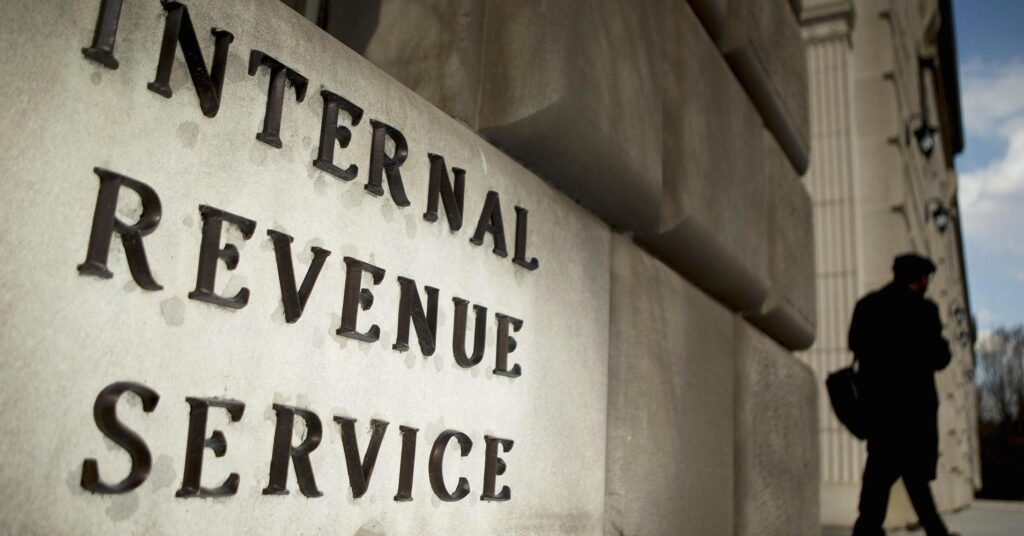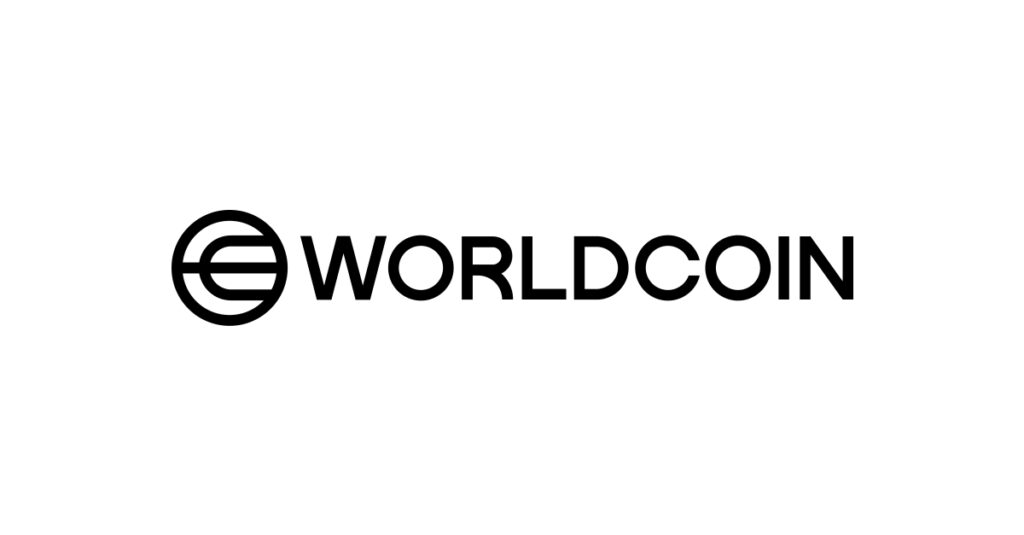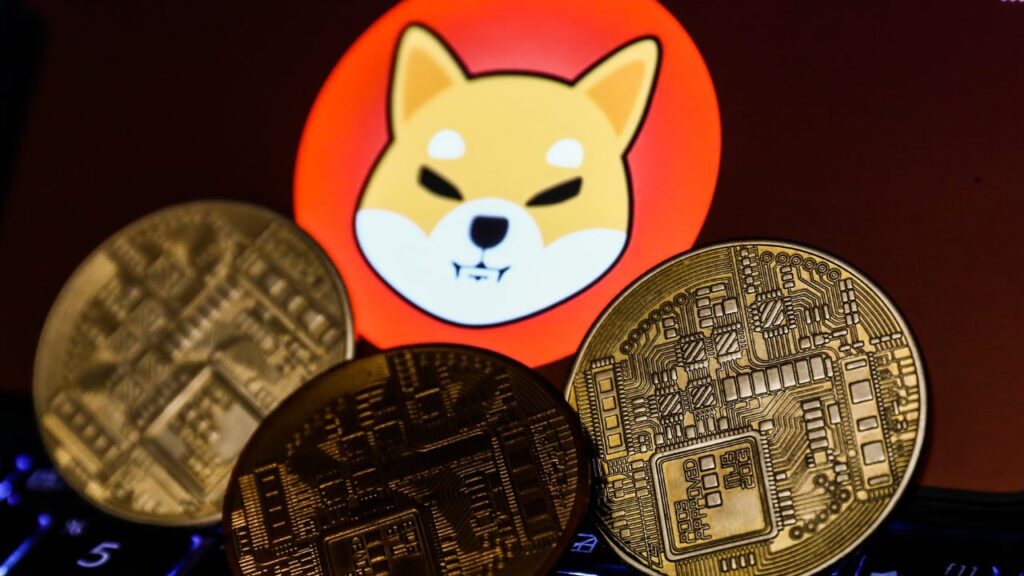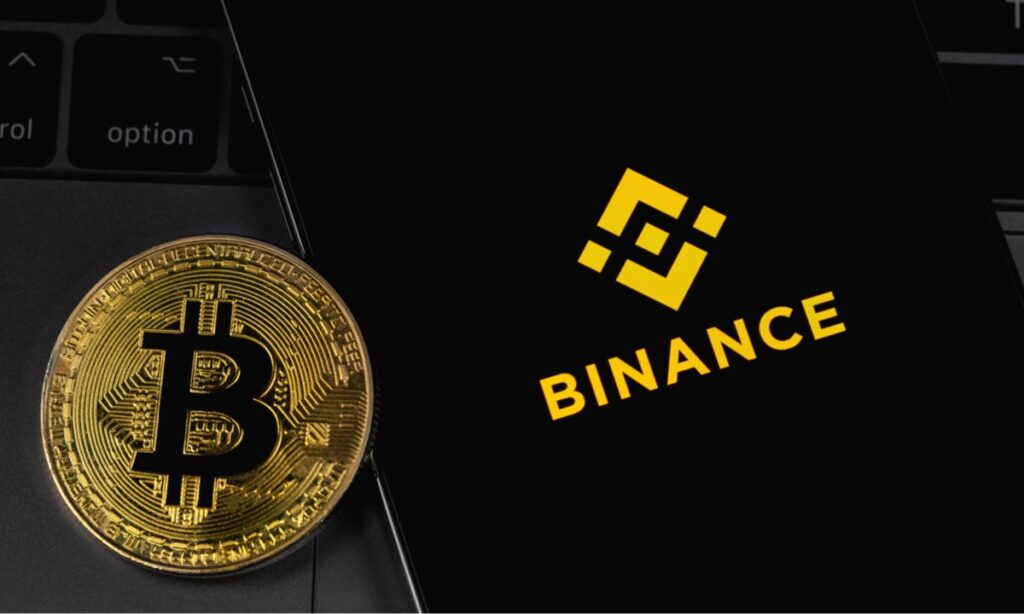Paolo Ardoino, the Chief Technology Officer of Tether, has responded to speculations surrounding images of industrial containers circulating online.
These images had led to questions about Tether’s involvement in Bitcoin mining, prompting Ardoino to clarify the situation.
In a recent post on X (formerly Twitter) on August 26, Ardoino provided insights into a photo he shared on August 24.
The picture showcased a container adorned with a photoshopped Tether Energy logo, which piqued the curiosity of many observers.
Ardoino explained that the image depicted a control room at a Bitcoin mining site operated by Tether, which is nearing completion and preparing to begin operations.
However, when pressed about the location of the mining site, Ardoino firmly declined to disclose it.
While he acknowledged that the site is situated in South America, he refrained from divulging further details due to security concerns.
He expressed that the decision to withhold exact locations was driven by a desire to prevent potential harassment of personnel, especially given the presence of Tether critics who have raised doubts about its legitimacy.
READ MORE: Former Worldcoin Insider Alleges Unlawful Practices and Mismanagement
Addressing skeptics who questioned the presence of the Tether logo on the containers, Ardoino clarified that it was a deliberate branding choice.
He revealed that the team had expected the photo to gain media attention and wanted to establish branding.
However, he noted that displaying prominent logos at mining sites could compromise the physical privacy and security of these locations.
Ardoino anticipated that operations at the mining site would commence in September. He conveyed the enthusiasm of the team and their diligent efforts to launch operations within the next few weeks.
This development follows news about Tether’s involvement in enhancing transparency within the Bitcoin mining sector.
In an interview with Cointelegraph on August 17, Ardoino elaborated on Tether’s ongoing work on a mining software named Moria.
This software aims to provide more comprehensive data analytics regarding energy production at Bitcoin mining sites.
Ardoino emphasized the importance of improved analytics and performance evaluation in the realm of Bitcoin mining.
He believes that Moria’s insights into energy usage, especially from renewable sources like wind and solar, could optimize mining operations and boost production.
Other Stories:
IRS Proposes Simplified Reporting for Digital Asset Taxes, Faces Industry Scrutiny
Co-founder of Tornado Cash Cryptocurrency Service Released on Bail
Bitcoin’s $20,000 Value Holds Steady Over Six Years When Adjusted for Inflation
Decentralized finance (DeFi) platform Balancer, known for its automated market maker mechanism, has confirmed an exploit that resulted in a loss of nearly $900,000.
The incident occurred shortly after the protocol disclosed a vulnerability affecting multiple pools, adding to concerns in the DeFi space.
This breach, unveiled on August 27 via a post on X (formerly Twitter), has been linked to a specific Ethereum address, purportedly belonging to the attacker.
Notably, Meier Dolev, a blockchain security expert, revealed the identity of this address.
Following the attack, the malicious entity received two separate transfers of the stablecoin Dai (DAI), totaling $636,812 and $257,527.
Consequently, the balance in the attacker’s address escalated to an alarming $893,978.
Acknowledging the situation, Balancer’s team addressed the exploit and its ongoing consequences. Despite implementing significant risk-reducing measures over recent days, the affected pools were not completely paused due to inherent limitations.
The protocol emphasized that users who engaged with these affected liquidity pools must take immediate action to minimize the risk of further exploitation.
The recommended course of action is to withdraw funds from these pools.
READ MORE: IRS Proposes Simplified Reporting for Digital Asset Taxes, Faces Industry Scrutiny
The underlying issue was first brought to light on August 22 when Balancer alerted users to a critical vulnerability in its boosted pools.
A subsequent effort to mitigate potential losses involved encouraging users to withdraw funds and temporarily halting pool activities.
This vulnerability extended its impact across various blockchain networks, including Ethereum, Polygon, Arbitrum, Optimism, Avalanche, Gnosis, Fantom, and zkEVM.
Initially, only a fraction of Balancer’s total assets (1.4%) were deemed susceptible on the day of the vulnerability’s discovery, amounting to over $5 million in asset exposure.
By August 24, the at-risk assets had decreased, but still accounted for $2.8 million, approximately 0.42% of the total value locked in the platform. Balancer’s team shared essential insights with their users through X:
“While we believe that funds in the mitigated pools (identified as ‘mitigated’) are secure, we strongly recommend transitioning to safer pools promptly or making withdrawals.
Pools that could not be effectively mitigated are labeled as ‘at risk.’ For those participating in these pools, we advise immediate exit.”
Balancer was initially deployed on the Optimism network in June of the previous year, aiming to enhance user experience and minimize transaction fees within the DeFi landscape.
However, this incident underscores the persistent challenges and risks faced by decentralized financial protocols and the broader crypto community.
Other Stories:
Co-founder of Tornado Cash Cryptocurrency Service Released on Bail
Bitcoin’s $20,000 Value Holds Steady Over Six Years When Adjusted for Inflation
Former Worldcoin Insider Alleges Unlawful Practices and Mismanagement
Bitcoin (BTC) is exhibiting on-chain activity reminiscent of the period preceding its historic surge to all-time highs in 2021, recent data reveals.
In a post shared on August 25th, Ki Young Ju, the CEO of CryptoQuant, a prominent analytics platform, disclosed that Bitcoin velocity has reached multiyear lows.
This trend indicates reduced movement of BTC at its current price levels, resulting in a lack of pronounced buying or selling pressures.
The concept of velocity, which gauges the rate of BTC units traversing the network, highlights this stagnant state.
CryptoQuant’s data highlights that on a daily basis, this metric is currently at levels that were last observed back in October 2020.
Ki Young Ju offered a two-fold perspective on this situation.
On one hand, it can be interpreted positively as evidence of whales retaining their BTC holdings.
Conversely, it could also be perceived negatively due to the limited transfer of BTC to new investors.
This scenario extends to high-volume traders as well, indicating a subdued trading activity amongst them.
This aligns with the narrative that the market is cautiously observing Bitcoin’s movements, adopting a “wait and see” approach.
READ MORE: Bitcoin’s Evolution Accelerates: Recursive Inscriptions Unveil New Horizons Beyond Cryptocurrency
Notably, the early months of the year witnessed the influx of fresh capital into the market, coinciding with BTC/USD’s impressive Q1 performance, achieving a remarkable 70% gain.
A significant aspect lies in the volume data. In late 2020, a similar pattern emerged where a low point in this metric coincided with Bitcoin’s surge past $20,000 and eventually reaching new all-time highs a year later.
However, in contrast to that period, Bitcoin’s current value of $26,000 seems to be oversold according to its daily relative strength index (RSI), as indicated by Cointelegraph Markets Pro and TradingView.
A recent report by Cointelegraph highlighted that the 12-hour RSI has hit a five-year low this month and is yet to recover, reflecting a delay in the resurgence of investor interest.
In conclusion, Bitcoin’s on-chain behavior is resembling the prelude to its previous historic price rally.
The slowed movement of BTC and the subdued trading activities among high-volume investors reflect a sense of caution prevailing in the market.
However, the oversold RSI suggests a potential for renewed investor engagement, albeit with a delay.
Other Stories:
Binance’s Russian P2P Crypto Exchange Renames Sanctioned Banks Amidst Controversy
XRP Faces Investor Sell-Off as Whale Transfers 29 Million Tokens Amid Price Dip
Galaxy Digital Poised to Manage FTX’s Recovered Cryptocurrency Holdings
The IRS, responsible for US tax collection, has unveiled proposed regulations regarding digital asset sales and exchanges by brokers.
These regulations aim to simplify tax filing and reduce tax evasion by introducing Form 1099-DA.
This form is designed to aid taxpayers in calculating taxes on digital asset gains and losses, thus negating the need for complex calculations and expensive digital asset tax preparation services.
The move aligns digital asset reporting with reporting standards for other asset types, fostering consistency.
The draft proposal, a substantial 282 pages, is set for publication in the Federal Register on August 29.
It is a part of the Biden administration’s execution of the bipartisan Infrastructure Investment and Jobs Act (IIJA), which is projected to generate $28 billion in fresh tax revenue over a decade.
Envisaged to take effect in 2026 for transactions in 2025, the rules’ implementation timeline was established. Public commentary on the proposal will be accepted until October 30, followed by at least one public hearing.
However, the initial response suggests potential challenges for the IRS. Kristin Smith, CEO of the Blockchain Association, underscored the uniqueness of the crypto ecosystem and stressed the need for tailored rules that avoid affecting participants without compliance options.
The DeFi Education Fund’s CEO, Miller Whitehouse-Levine, criticized the proposal as attempting to apply regulations built around intermediaries to a context where they don’t exist.
Criticism has extended to political spheres as well. Patrick McHenry, chairman of the House of Representatives Financial Services Committee, deemed the proposal an extension of the Biden administration’s assault on the digital asset sector.
READ MORE: Binance’s Russian P2P Crypto Exchange Renames Sanctioned Banks Amidst Controversy
McHenry asserted that the rules should adhere to the narrow, precise criteria laid out after the Infrastructure Investment and Jobs Act’s passage.
He applauded the exemptions mirroring those in the Keep Innovation in America bill, co-authored by himself and Rep.
Ritchie Torres, aimed at rectifying the perceived inadequacies of digital asset reporting provisions in the IIJA.
Coin Center, an advocacy group, had previously communicated digital asset taxation suggestions to Sens. Ron Wyden and Mike Crapo.
The suggestions targeted digital assets specifically and voiced concerns about privacy implications.
In conclusion, the IRS’s proposed regulations on digital asset reporting via brokers aim to streamline tax filing and prevent evasion.
The introduction of Form 1099-DA seeks to simplify calculations for taxpayers and bring digital asset reporting in line with other asset types.
Yet, the proposal faces early criticisms for its applicability in the unique crypto landscape and its potential regulatory overreach.
Other Stories:
Bitcoin’s Evolution Accelerates: Recursive Inscriptions Unveil New Horizons Beyond Cryptocurrency
Galaxy Digital Poised to Manage FTX’s Recovered Cryptocurrency Holdings
XRP Faces Investor Sell-Off as Whale Transfers 29 Million Tokens Amid Price Dip
Roman Storm, a co-founder of the cryptocurrency mixing service Tornado Cash, was taken into custody by the United States Department of Justice (DOJ) on August 23 on charges of money laundering and other offenses.
However, his lawyer, Brian Klein, swiftly announced that Storm has been granted bail following his arrest.
Expressing his discontent, Klein highlighted his disappointment with the prosecution’s decision to target Storm for his involvement in software development.
Klein stated that this legal approach sets a risky precedent, potentially affecting all software developers.
Storm’s release on bail occurred shortly after the DOJ’s announcement of his arrest and the charges brought against him and fellow Tornado Cash founder Roman Semenov on August 23.
The charges presented by U.S. authorities revolve around allegations of operating Tornado Cash’s services and purportedly laundering over $1 billion in illicit funds.
Additional charges entail accusations of engaging in a conspiracy to violate sanctions and running an unlicensed money transmitting business.
Despite the release of Storm on bail, there has been no immediate response from his lawyer, Klein, in relation to Cointelegraph’s inquiry.
This development emerges approximately a year after the U.S. Treasury Department designated Tornado Cash-associated addresses as part of the Office of Foreign Asset Control’s (OFAC) list of Specially Designated Nationals.
READ MORE:Ordinal Inscriptions Maintain Dominance on Bitcoin Network Despite Price Dip
This action led to the subsequent arrest of another Tornado Cash developer, Alexey Pertsev, in the Netherlands.
Pertsev spent around nine months in custody before being released in April 2023.
It is important to note that Storm and Pertsev are not the sole developers of Tornado Cash who have faced legal actions.
Roman Semenov, another co-founder, was also added to OFAC’s list of Specially Designated Nationals and Blocked Persons on August 23.
Despite being listed, Semenov has yet to be arrested for the alleged offenses.
The situation reflects an ongoing legal battle surrounding the cryptocurrency mixing service and its developers.
Other Stories:
New DeSo Network Friend.tech Generates Over $1 Million in 24 Hours
UK Prime Minister Allocates £100 Million to Acquire Computer Chips for AI Advancement
Bitget Cryptocurrency Exchange Enhances KYC Procedures to Align with Global Regulations
An individual identifying as Nadir Hajarabi, who professes to have formerly been associated with Worldcoin, has made serious allegations against the project’s legitimacy, suggesting potential involvement in unlawful activities during their tenure.
In a video uploaded on August 23rd to YouTube, Hajarabi disclosed witnessing what they termed “highly questionable” practices within Worldcoin (WLD).
These actions, which they considered to be either reckless or illegal, occurred before Hajarabi’s departure from the project just prior to the token’s launch on July 24th.
Hajarabi alleged that not only was their compensation withheld, but they were also in communication with authorities from various jurisdictions who were investigating the actions of Worldcoin.
Hajarabi outlined that the Worldcoin initiative suffered from a multitude of shortcomings in its execution, indicating that corners were cut during the preparation of the white paper.
They attested to having noticed warning signals “right from the outset.”
Attempts to address their concerns with the CEO of Worldcoin and the organization’s legal team yielded unsatisfactory explanations regarding the apparent disparities between the project’s mission and its actual implementation.
“I have been denied rightful compensation for my dedicated efforts during ETHCC and ETH Global due to raising valid questions,” Hajarabi conveyed to Cointelegraph.
“This treatment is unjust, and I refuse to be silenced and financially mistreated.
Regardless of the extent of my influence, I am committed to advocating for what is rightfully owed to me… a company that professes to rectify financial disparities should not perpetuate economic harm onto its workforce.”
Cointelegraph was unable to independently corroborate Hajarabi’s assertions, which involved their provision of “specialized services” to the organization.
A photograph uploaded to X (formerly Twitter) appeared to feature Hajarabi with one of Worldcoin’s iris-scanning devices.
Their YouTube channel, initiated in September 2013, solely displayed one video – the aforementioned allegations against Worldcoin.
READ MORE: Shibarium’s Anticipated Layer-2 Launch Nears, Promising Enhanced User Experience and Security
An X account ostensibly controlled by the same individual exhibited a snapshot of an ETHGlobal Paris badge that displayed Hajarabi’s name and affiliation with Worldcoin.
Furthermore, a LinkedIn profile attributed to Hajarabi seemed to correspond with the individual in the YouTube video – a Parisian resident experienced in nonfungible tokens, Web3 projects, and smart contracts.
Cointelegraph attempted to solicit a response from Worldcoin, but no reply was received at the time of this publication.
Worldcoin was initially established with the aim of distinguishing authentic individuals from automated entities by utilizing retinal scans for identity authentication via their specialized orbs.
Over 2 million registrations were recorded prior to the Worldcoin token’s launch in July.
Preceding the token and verification process rollout, numerous individuals within and beyond the cryptocurrency domain raised objections against the project, citing concerns regarding data privacy.
The Bavarian State Office for Data Protection Supervision reportedly initiated an inquiry into Worldcoin in November 2022, while the French National Commission on Informatics and Liberty reportedly labeled the organization’s data gathering techniques as “dubious.”
Similar reservations were echoed by the Information Commissioner’s Office in the UK.
In August, Kenya’s Minister of Internal Security announced the suspension of Worldcoin’s local operations until the assessment of potential risks to residents was completed.
This action reportedly included a search and confiscation of the organization’s equipment.
Subsequently, Argentina’s Agency for Access to Public Information launched an investigation into Worldcoin’s handling, storage, and utilization of customer data, citing apprehensions about security and privacy.
Other Stories:
Galaxy Digital Poised to Manage FTX’s Recovered Cryptocurrency Holdings
Binance’s Russian P2P Crypto Exchange Renames Sanctioned Banks Amidst Controversy
XRP Faces Investor Sell-Off as Whale Transfers 29 Million Tokens Amid Price Dip
More than 50% of Russian citizens are open to the idea of entrusting their funds to a central bank digital currency (CBDC), as revealed in a recent survey jointly conducted by the Saint Petersburg Exchange and the Russian Trading System (RTS).
However, the same level of trust does not extend when larger sums are considered.
Only 17% of respondents express confidence in the digital ruble for amounts exceeding 20,000 rubles (approximately $212).
The survey encompassed a broad demographic range, involving over 2,000 participants aged between 18 and 65 across the nation.
The findings, disclosed on August 24 in the local newspaper Izvestia, unveiled that 58.3% of those surveyed are theoretically inclined to invest their funds in a CBDC.
Within this group, the majority (23.8%) would be comfortable transferring sums ranging from 5,000 rubles ($53) to 20,000 rubles ($212) into digital currency.
A smaller fraction, 9%, can envision storing 20,000 to 50,000 rubles ($212 to $529) in a CBDC, while 2% are open to entrusting amounts up to 100,000 rubles ($1,058).
Notably, a mere 2.4% are willing to embrace the notion of placing all their finances in a central bank digital currency.
READ MORE: Bitget Cryptocurrency Exchange Enhances KYC Procedures to Align with Global Regulations
The transition towards digital rubles has already commenced in Russia, with trials commencing on August 15. Thirteen banks are participating in these preliminary tests alongside a select group of their clientele.
This phase of testing focuses on refining fundamental operations, with emphasis on processes such as the establishment and funding of digital ruble accounts, facilitating peer-to-peer digital ruble transactions, optimizing automated payments, and introducing QR codes for streamlined purchase and service transactions.
Olga Skorobogatova, the First Deputy Governor of the Bank of Russia, has outlined a strategic vision to integrate the digital ruble into widespread usage between the years 2025 and 2027.
The ongoing survey underscores a burgeoning acceptance of the CBDC concept among Russians, but also highlights the need for further confidence-building measures, particularly for larger financial commitments.
Other Stories:
New DeSo Network Friend.tech Generates Over $1 Million in 24 Hours
Ordinal Inscriptions Maintain Dominance on Bitcoin Network Despite Price Dip
UK Prime Minister Allocates £100 Million to Acquire Computer Chips for AI Advancement
Pro-XRP advocate John Deaton has criticized the United States Securities and Exchange Commission (SEC) for its handling of the allegations against Ripple’s CEO Brad Garlinghouse.
Deaton asserts that the SEC’s accusations of aiding and abetting were misguided.
He points to revelations from former SEC officials Bill Hinman and Jay Clayton during the SEC vs. Ripple Labs case, which suggested that XRP should have been considered a non-security.
Despite this, the SEC ignored this information for an extended period.
Digital Asset Investor.XRP, a user on the platform X (previously known as Twitter), expressed the opinion that summoning a16z attorneys Lowell Ness and Chris Dixon, alongside former SEC officials Clayton and Hinman, would have been a more strategic move in the legal battle between the SEC and Ripple.
Deaton concurs that Hinman’s testimony would have been pivotal, but acknowledges the challenges of legally summoning a former SEC chair for trial.
Nonetheless, Deaton argues that the SEC made a mistake in charging Garlinghouse, particularly given Clayton’s history of pursuing complaints against executives in non-fraudulent contexts.
READ MORE: Binance’s Russian P2P Crypto Exchange Renames Sanctioned Banks Amidst Controversy
Deaton emphasizes the significance of Clayton as a witness whose testimony should have been presented in court.
Clayton had interactions with Ripple’s CEO and chief technology officer, during which Garlinghouse remarked that “Ripple is living in purgatory” after the Hinman speech.
However, neither Clayton nor Hinman explicitly designated XRP as a security.
Seeking clarity from these former SEC officials could have potentially saved time and legal expenses, potentially fostering greater adoption of cryptocurrencies.
Despite Judge Analisa Torres ruling that XRP doesn’t qualify as a security in certain cases, the SEC aims to challenge this decision.
In a recent development, a substantial holder of XRP transferred over $20 million worth of tokens to exchanges amid the ongoing breach of its support levels, indicating potential market instability.
Other Stories:
Bitcoin’s Evolution Accelerates: Recursive Inscriptions Unveil New Horizons Beyond Cryptocurrency
Galaxy Digital Poised to Manage FTX’s Recovered Cryptocurrency Holdings
XRP Faces Investor Sell-Off as Whale Transfers 29 Million Tokens Amid Price Dip
Blockchain technology continues its forward march with the imminent public unveiling of Shibarium’s eagerly awaited layer-2 version.
The Shiba Inu team has eagerly announced that the platform is in seamless operation and merely awaits its public debut.
Behind Shibarium, an Ethereum layer-2 network, stands a team that has signaled the platform’s current live status in its private mode.
Following a two-day test that demonstrated its smooth functionality, the platform teeters on the edge of accessibility to the wider public.
In a recent blog post, the Shibarium team assured users that their funds remain secure, and an enhanced experience awaits once the platform opens its doors to all.
The early beneficiaries of this update are already celebrating as bridged BONE tokens make their entry.
Responding to this development, the Shibarium community, affectionately known as the Shib Army, has been expressing their excitement on X (previously known as Twitter).
The team proudly expressed its contentment with the progress achieved, asserting that the network has reached a “ready” state after meticulous testing and parameter adjustments.
Notably, block generation remains consistently glitch-free.
Recent updates to the platform encompass significant safety augmentations and a robust monitoring system.
These enhancements encompass the introduction of rate limitations at the remote procedure call (RPC) level and an automatic server reset mechanism.
READ MORE:SEC Lawsuit Stifles XRP’s US Adoption Potential, Pro-XRP Advocate Asserts Amid Coinbase’s Moves
These proactive measures aim to preclude potential issues stemming from abrupt traffic spikes, ensuring users a reliable and uninterrupted experience.
During its testing phase, the network garnered substantial attention, with millions of wallets engaging in over 22 million transactions spanning a four-month period.
However, the initial launch wasn’t devoid of challenges.
An overwhelming surge in activity temporarily overwhelmed the network, causing a halt in transactions for several hours.
This occurrence led to millions of dollars becoming stuck on a bridge tool and subsequently triggered a 10% decline in the value of Shiba Inu.
Subsequently, the development team swiftly addressed these challenges, attributing the server overload to an unforeseen spike in transaction volume.
With the lessons learned, the team is now confident in the success of the forthcoming reopening, undeterred by the initial stumbling blocks.
Other Stories:
Bybit Unveils NFT Collection as Part of Velocity Series
Global Disparities in Bitcoin Mining Costs Highlighted: From $208,560 in Italy to $266 in Lebanon
Binance’s peer-to-peer (P2P) cryptocurrency exchange in Russia has persisted in facilitating transactions involving sanctioned banks like Rosbank, despite prior denials of any bank relationships.
Recent reports from local sources indicate that Binance P2P has opted to rename some of its problematic payment channels for deposits and withdrawals, specifically those linked to sanctioned Russian banks like Tinkoff and Rosbank.
In an effort to obscure these associations, the exchange has rebranded the bank references “Tinkoff” and “Rosbank” as “Yellow” and “Green” cards, as confirmed by Cointelegraph.
As of now, Binance P2P offers users the option to utilize “local cards” to convert cryptocurrencies such as Tether into Russian rubles, with funds being processed through the sanctioned Tinkoff or Rosbank.
This alteration in nomenclature coincided with a report from The Wall Street Journal on August 22, detailing Binance’s provision of at least five sanctioned Russian banks, including Tinkoff and Rosbank, as potential avenues for transaction processing.
In response, Binance executives vehemently denied any affiliations with banks, both in Russia and globally, stressing their adherence to international sanctions regulations and their commitment to blocking restricted entities’ access to the Binance platform.
Interestingly, these developments followed the promotion of Binance services on the YouTube channel of prominent Russian YouTuber Yuri Dud, boasting 10.3 million subscribers. Dud’s vDud channel showcased an advertisement for Binance services, incentivizing sign-ups with 5 USDT.
READ MORE: Bybit Unveils NFT Collection as Part of Velocity Series
Additionally, the video highlighted Binance Earn, an avenue enabling users to generate passive income from cryptocurrencies via flexible savings, locked savings, staking, and liquidity mining.
The implications of these recent revelations within the context of Western sanctions against Russia remain uncertain.
Notably, European Council sanctions imposed in February 2023 targeted Russian banks like Tinkoff and Rosbank as part of efforts to address Russia’s conflict with Ukraine.
Similarly, the United States enacted sanctions against Tinkoff in May 2023.
These developments followed a previous report that the U.S. Department of Justice security division had initiated an investigation into Binance’s alleged breach of U.S. sanctions by permitting Russian usage of the platform.
It’s important to note that Binance is not the sole cryptocurrency exchange participating in such activities in Russia.
Other major P2P crypto exchanges, including Huobi and OKX, are also facilitating transactions with Tinkoff, Rosbank, and Sberbank.
While Binance declined to comment on matters such as its advertisements on Dud’s YouTube channel and its current operations in Russia, the exchange reiterated statements provided in The Wall Street Journal report.
Binance’s spokesperson stated that no further comments would be offered at this time.
Regarding the renaming of sanctioned banks to “Yellow” and “Green” cards, Binance has yet to respond to inquiries from Cointelegraph.
Other Stories:
FTX Founder Seeks Release for Defense Collaboration
SEC Lawsuit Stifles XRP’s US Adoption Potential, Pro-XRP Advocate Asserts Amid Coinbase’s Moves
Global Disparities in Bitcoin Mining Costs Highlighted: From $208,560 in Italy to $266 in Lebanon












